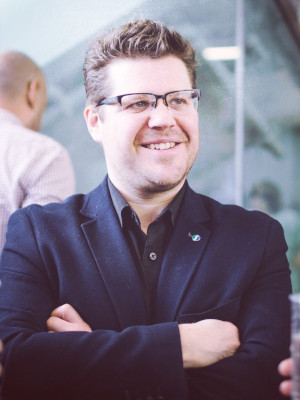Nimble isn’t often the word you’d choose to describe a university. But then Schulich Startups isn’t likely the academic department you’re picturing, either. It’s a business school that behaves like a startup—agile, collaborative and just a little bit restless.
Tucked inside York University’s Schulich School of Business, Schulich Startups—also called the Office of Innovation and Entrepreneurship—is busy, and nimble. Led by executive director Chris Carder and associate director Chelsea Gray, the office sits at the crossroads of academia, venture capital and industry.
It has helped its entrepreneurial business founders raise more than $80 million in venture capital. It nurtures an ecosystem of entrepreneurs, venture capitalists, alumni and founders.
It has also trained hundreds of entrepreneurs through the Schulich Venture Academy, co-created by Cherry Rose Tan, who is also the North Horizon Entrepreneur in Residence at the school.
“It’s not easy to build something like this from scratch,” says Tan. “This school feels completely different, and we’re very proud of the work that we’ve done.”

In practice, Schulich Startups’ mandate is to empower the next generation of founders with the network, mentorship and tactical knowledge they need to build and scale great companies, Tan says.
During the COVID-19 pandemic, for instance, Schulich Startups co-created a program supporting main street retail businesses across the country, teaching them how to embrace e-commerce, says Carder, who is also the Jay Smith and Laura Rapp Chair in Innovation and Entrepreneurship in the Schulich School.
“Our students and faculty were working alongside people like the City of Toronto, Shopify, Microsoft and Google to train all these small businesses how to go online. And we actually built that program and implemented it on a national level within 30 days.”
They also host events. Family offices are being invited to attend a discussion with entrepreneur and investor Michael Hyatt on Nov. 25 about the role of family offices in Canada’s innovation economy. Structured as a fireside chat and moderated by Tan, the talk is called Quiet Giants: Inside the World of Family Offices. For FOs, it’s a chance to be seen not just as quiet giants but as key architects of the country’s innovation economy.
Schulich StartUps has also worked with the government of India to collaborate on a remote training model to coach thousands of Indian tech and science students on ways to turn their inventions into business concepts.
What’s the secret of their success? Carder credits fewer committees and more trust. The program’s tactical advantage lies in how closely it’s wired to the school’s leadership. “We’re on a What’sApp-level relationship with the dean,” says Carder. “And we have an incredible amount of trust and autonomy to run with our ideas.”
Their approach has been appreciated by innovators, investors and entrepreneurs around the world, he adds.
“We move so much faster than most academic institutions,” says Carder. “They continue to be impressed by our ability to meet the moment and create things that academic institutions should be creating, but would often take months and years to implement.”
Family offices are showing interest in venture investment for a number of reasons. Tan says there’s a desire and opportunity to support the next generation of Canadian entrepreneurs.

“I feel like there is a generational shift right now happening in family offices,” says Tan. “The next generation are interested in startups. They’re interested in venture capital.”
Schulich Startups is becoming a bridge, she says, connecting high-net-worth families with Canada’s next generation of founders, funders and future VCs.
It’s natural to wonder what kind of impact today’s rocky trade relationship with the United States is having on the VC landscape. How are Canadian family offices responding?
Many have shifted to very intentional strategies, Tan says, staying in the asset class but with a sharper focus, and prioritizing sectors where they have expertise or passion.
“I find that people are more risk-averse now, which makes sense,” she adds. “They really need to see the numbers, and see the metrics. … They’ll pursue certain verticals that the family is especially interested in and where they may have strategic insight or are guided by conviction.”
Among other developments at Schulich Startups:
- In March, it secured more than $3 million in federal funding for the Schulich Venture Academy to train nearly 1,000 entrepreneurs.
- In June, it celebrated the creation of the new Jay Smith and Laura Rapp Chair in Innovation and Entrepreneurship, due to a $1 million donation from the Schulich Foundation.
- And in October, it announced a $250,000 gift from the family-office-backed North Horizon Foundation and the launch of an investor advisory council comprised of 24 VCs, family offices and strategic angels.
They also recently broke into the top 50 for the first time in PitchBook’s annual university rankings, coming in at No. 41 for 2025 for MBA programs around the world. The financial data company’s influential list identifies the top 50 schools, based on metrics such as the number of alumni entrepreneurs who have raised venture capital in the past decade.
High profile supporters are taking notice, among them Allen Lau, co-founder and operating partner of Two Small Fish Ventures, and former CEO of Wattpad.

“It’s the kind of ecosystem that turns ambition into impact,” Lau says. “Founders thrive when the right pieces of the ecosystem, such as mentorship, talent and capital, come together.”
Schulich alumni Xiaobo Wang, Annie Liu and Robert Guo were instrumental in the $250,000 gift from North Horizon Holdings Inc. Wang, executive vice-president of corporate development at the North Horizon Foundation, says Schulich Startups is foundational to the future of Canada’s innovator economy.
The program “not only equips students with practical entrepreneurial experience,” Wang adds, “but also builds the bridges between academia, venture capital and industry that our country needs to scale homegrown talent.”
Cindy McGlynn is a Toronto-based writer and editor who frequently writes about business, culture and the arts. In addition to holding communications roles at tech startups and writing for consumer and B2B publications, Cindy has edited two national magazines and served as a long-time columnist for the Toronto Star’s Eye Weekly magazine. She has been contributing to Canadian Family Offices for four years.
The Canadian Family Offices newsletter comes out on Sundays and Wednesdays. If you are interested in stories about Canadian enterprising families, family offices and the professionals who work with them, but like your content aggregated, you can sign up for our free newsletter here.
Please visit here to see information about our standards of journalistic excellence.

